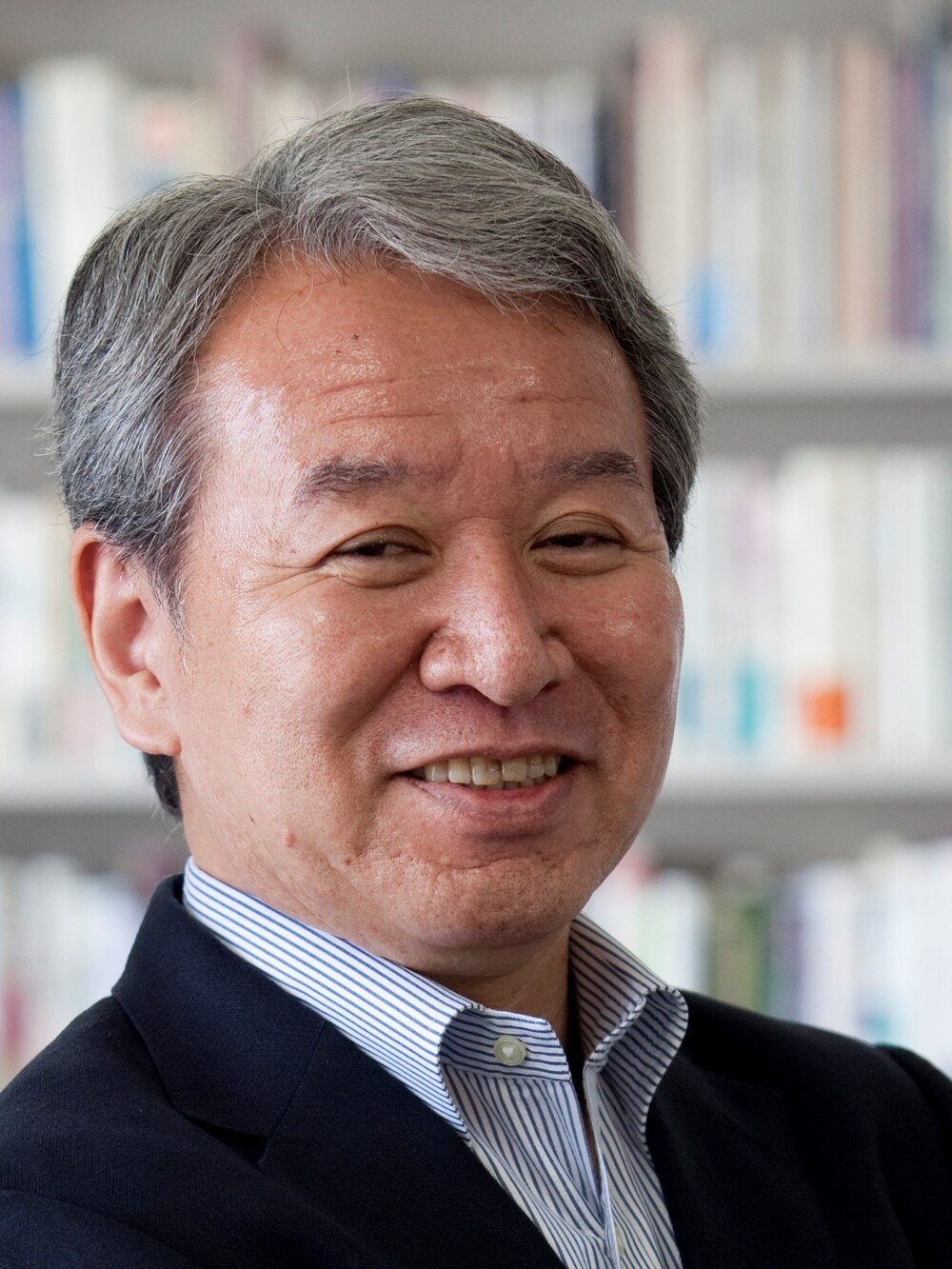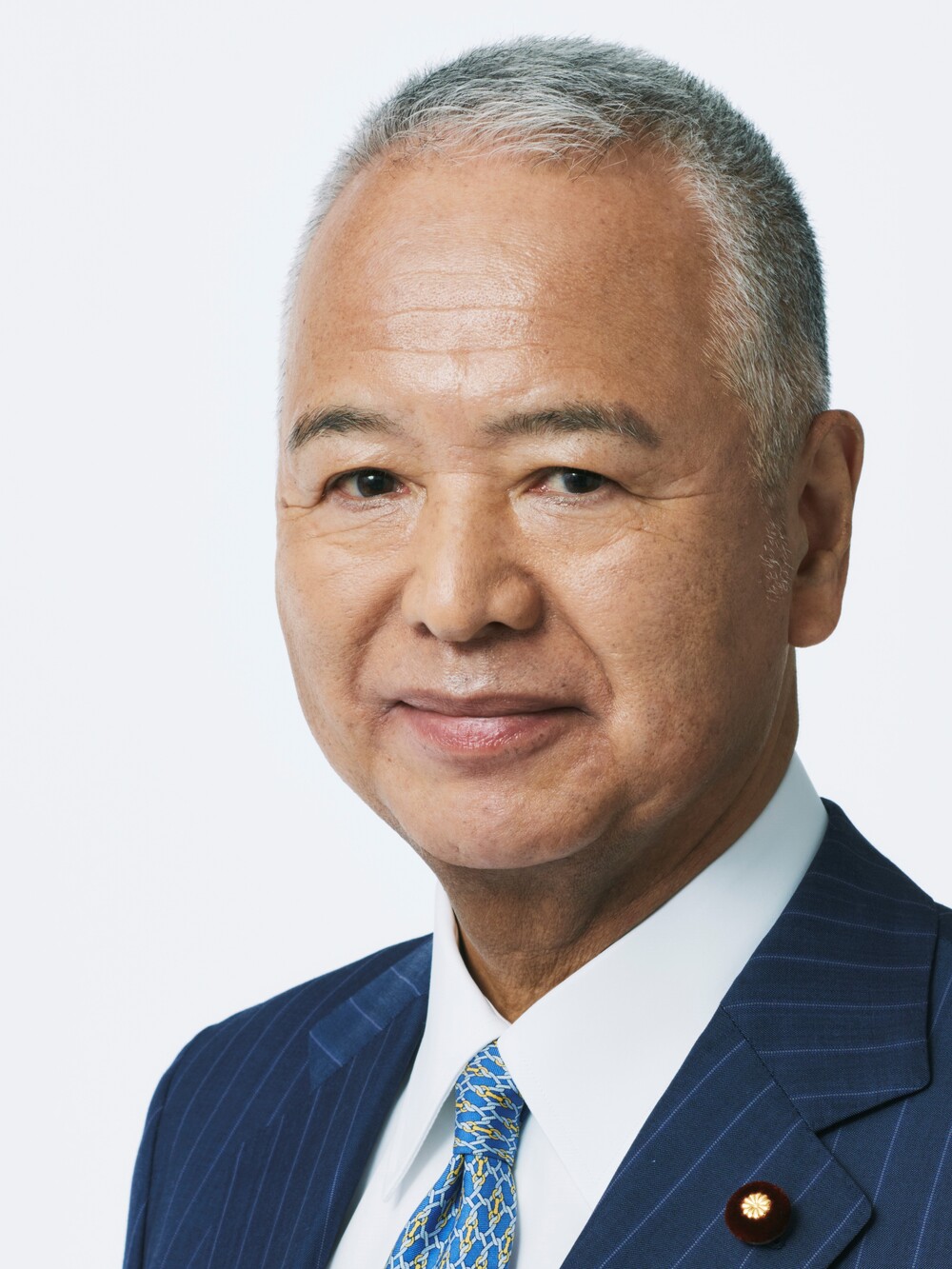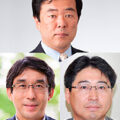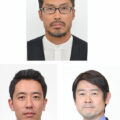The Urgent Need to Establish “Strategic Autonomy” and “Strategic Indispensability”—economic security strategy for a digital transformation society
Amari Akira, Member of the House of Representatives
Interviewed by Tanaka Akihiko, President of the National Graduate Institute for Policy
Studies (GRIPS)
 Tanaka Akihiko |
 Amari Akira |
Tanaka Akihiko: As Chairperson of the Strategic Headquarters on the Creation of a New International Order, Policy Research Council of the Liberal Democratic Party you put together two proposals: “Towards ‘Formulating Economic Security Strategy’” (December 2020) and “Interim report: Basic Policy for Economic and Fiscal Management and Structural Reform 2021” (May 2021).
Amari Akira: Economic statecraft, to put it bluntly, is forcing the other party to accept one’s demands using economic means… and such a thing has been used repeatedly throughout history all over the world. For example, following a 2010 incident in the sea off the Senkaku Islands, China effectively halted exports of rare earth materials to Japan. There are also people who criticize the United States for imposing “sanctions” by using the Society for Worldwide Interbank Financial Telecommunication (SWIFT).
However, looking at the progress of Digital Transformation (DX) in recent years, my own sense of impending crisis has become stronger. DX, in short, makes maximum use of data and digital technology to revolutionize the society and people’s lives in a positive way, not just the development of more advanced individual devices but change to the nature of society as a whole. There will be continued progress towards smart cities that make use of digital technology in all kinds of fields, such as mobility, education, medical care, energy, disaster prevention, and industry. We are reaching a stage that is clearly different from the past.
But if that is misused by the powerful, we may see the arrival of a surveillance society. The principles behind monitoring 10 people and monitoring one billion are not different. There may even be countries who try to do that across national borders. There is a need to establish standards and rules from a new perspective to protect freedom and democracy, human rights and privacy, and information essential to business.
The key to DX is collecting data. And that is handled by semiconductors. If malware or spyware is put into computer semiconductor chips, there is potential for it to cause harm in every possible area of business and social life—maybe even at the forefront of military affairs. In terms of the extent, or depth, of those effects, DX is not a continuation of what’s come before. That’s why economic security is already an essential factor for protecting our nation, industry, and daily lives.
Towards a country with strong presence that is autonomous and indispensable to the world
Tanaka: In your proposals you discuss realizing economic security from two perspectives, “strategic autonomy” and “strategic indispensability.”
Amari: These two concepts are the key points of economic security. Strategic autonomy means securing citizens’ livelihoods and normal economic management in any circumstance without excessive reliance on other countries. Strategic indispensability means expanding fields where the existence of Japan is indispensable to the economic structure of international society as a whole. This is a slightly casual way of putting it, but it is overcoming the choke points of your own nation’s strategic industrial infrastructure, but also grasping the other’s choke points.
Tanaka: In your May interim report you identified five areas as strategic core industries: information and communication, energy, transportation/maritime logistics, finance, and medical care. Is there an order of priority to the importance of these?
Amari: Generally, economic security is pictured as relating to critical technologies such as information and communications, or maybe such things as sensitive dual use technologies. But I believe that importance should be placed on all five fields. What made me realize that choke points actually exist in a wide range of daily items was the COVID-19 pandemic. The most extreme example of that was medical masks and gloves. Japan is reliant on suppliers overseas for most of its medical equipment. This is the consequence of economic logic but, as a result, when the supply from abroad stopped we entered a situation where the medical system might collapse. You could say, “You don’t need missiles to kill Japan; masks are enough.”
Tanaka: So, even low-tech products can become a choke point?
Amari: Yes, that’s right. Regarding the other areas of information and communication, energy, transportation/maritime logistics and finance, they are all connected directly to how Japan’s economic system functions. So from an economic security perspective there’s an urgent need to investigate and reveal vulnerabilities.
Tanaka: On the other hand, even in the case of products of the highest strategic importance, it’s not possible for Japan to handle them all by its own efforts. What do you think about that balance?
Amari: The key is whether we can build supply chains with low-risk countries and countries with which we truly share values. In that sense, it is essential to develop new supply chains even if a certain cost is involved. For companies there will be a short-term burden, but looking at the medium- and long-term it will likely lead to securing stable cost performance.
The urgent need to develop attractive technology
Tanaka: Regarding the “protecting technology” mentioned in your proposals, we can say that cooperation between private companies and universities/research institutes is essential.
Amari: When it comes to securing strategic autonomy, i.e., investigating, revealing, and overcoming choke points, if proper research is done, it is possible to understand the actual situation and respond. Trickier is strategic indispensability. How much can we do to create fields that can’t function without Japanese products? What’s important for that is to unearth the seeds that will grow and contribute to the development of sensitive and next-generation technology, and to establish superiority in those areas.
I’ve had multiple discussions with various researchers and people involved. There are many researchers in Japan trying to establish technology that could change the world, and research is moving forward.
Tanaka: As we think about how to preserve such technology, it’s also necessary to ensure an attractive research environment.
Amari: The government is also starting to address that issue. The Cabinet Office has started an initiative to collect evidence on “research,” “education,” and “securing funds” about research institutions and compile it in a database. This platform is called the e-CSTI” (evidence data platform constructed by the Council for Science, Technology and Innovation). It’s a shared database that spans universities and research institutes—and there aren’t many similar examples around the world. That’s because all researchers and universities want to fence off their own results. By opening that up a certain amount, the seeds that will become technologies can be found from among various basic research and nurtured. On top of that, the government has established a 10-trillion-yen university fund which will start full-scale operation during the next financial year. That the Ministry of Finance has actually approved such a huge sum may represent a sense of crisis on the government’s side.
At the same time, we must both ensure proper security for, and manage the research related to the development of cutting-edge technology that uses that kind of platform and fund. Protecting these technologies and nurturing them goes together.
Tanaka: Let’s hope these technologies come to be commercialized.
Amari: They say that “winning at the technology but losing at the business” is a Japanese specialty [laughs]. There’s a need for strategy that goes all the way to the social implementation stage. Creating added value though business firms and other venture companies; rapidly accessing markets by bringing together industry and academia; exerting a presence on global markets; and also creating the services necessary for these purposes—how do we establish an innovation ecosystem for that? That is the big challenge.
Tanaka: Finding and nurturing those kinds of seeds leads to a strengthening of strategic indispensability, and if implemented in a large number of fields, it may produce effective supply chain cooperation with allies and friendly nations. Conversely, unless we have cards to play, even allies and friendly nations won’t work with us. It is extremely important to put in place a strategic environment for protecting and nurturing technology.
Properly finding out game changing technology
Tanaka: Recently, semiconductors are an important area of concern when it comes to economic security. Japanese-made semiconductors once had an over 50% world share, but that status has declined since the 1990s. You are also the chairperson of the All-Party Parliamentary Group on Semiconductor Strategy. How do you see this issue?
Amari: I’ve already mentioned how, due to the arrival of a digital transformation society, we are suddenly in a new phase of economic security. Our economy and society, and the nation too, is becoming more data driven, and semiconductors are the technology at the core of that. It’s no exaggeration to say that semiconductors will determine the future development of society and its values. Because of that, they are a key global battlefield for development of economic security. For that reason, we absolutely must avoid the kind of situation where semiconductors become a choke point—for example, when key products are all made outside Japan. On the one hand, while of course it is necessary to appropriately manage trade in semiconductors and related products—i.e., not use materials from untrustworthy countries nor supply them with sensitive technologies—it is essential to stimulate semiconductor production within Japan.
Although Japan has only a 9% share of the market for semiconductors themselves, it holds the top share in quite a few manufacturing devices and materials technology related to semiconductor production. The problem becomes how to maintain and expand domestic semiconductor production to preserve our competitive edge in these strategic products.
Tanaka: We need not only to protect technologies where we currently have an advantage, but also read the market’s needs, and grasp the direction of trends in technology development and growth.
Amari: Just as you say, the semiconductor industry is extremely fierce, the sort of world where today’s top companies might disappear in a few years. To date, improving the function of logic semiconductors has meant miniaturization of the circuits. The market for the photolithography technology essential to this miniaturization is almost entirely dominated by ALSM, a company in the Netherlands. TSMC (Taiwan Semiconductor Manufacturing Company) products have gone beyond a 10 nm node to 5 nm, and are trying for the region of 2 nm. Meanwhile, alongside miniaturization, laminating technology is attracting attention as a different way to enhance functionality. Supposing that there’s a technological shift in which a hybrid technology involving laminating and miniaturization becomes the norm, a new market leader may suddenly be created.
How will the DX society develop and what sort of functions will semiconductors need? We need to focus on what the future we want looks like, and work back from there. No matter how good the things we make are, it’s pointless without demand. We need the government to continually survey the market and keep an eye out for the kinds of need that will arise.
The need for the government to set up new structures
Tanaka: It seems that a governmental structure to work on economic security is gradually being set up.
Amari: Under the direction of the Prime Minister’s Office, and in order to put in place structures for various decisions to be made, a major change came in April 2020 with the setting up of an economics division in the National Security Secretariat (NSS). I hope that this will serve as a control hub and further bolster efforts. As members of the legislature, we are working to enact an “Act for Economic Security Promotion” (tentative name) during the 2022 ordinary Diet session to support such efforts by establishing a legal basis. By clarifying the basic principles of economic security and practical methods of implementation it will serve as a guideline for the individual ministries as they promote a range of initiatives. For example, in relation to companies and industries, it will lay out rules and regulations to reduce risk in the areas of the maintenance of critical infrastructure functions and the preservation/nurturing of key technologies. In the case of international negotiation, the Ministry of Foreign Affairs plays a large role, and the Ministry of Education, Culture, Sports, Science and Technology is involved in tie-ups with academia. The aim is to provide an integrated framework within which ministries can draft necessary revision of laws or new legislation and engage in international negotiations.
Tanaka: In order to develop effective economic security policies, as well as systems, it is essential to have excellent human resources. To do that, dialogue and cooperation between engineers, researchers, administrators, and politicians is important, isn’t it?
Amari: The political and administrative sides are gradually beginning to share this economic security perspective. I am proud that I was the first to impress the importance of economic security among Japanese Diet members. In 2018 I was invited to the Brookings Institution in the United States to take part in a panel discussion on “The Future of Trade in U.S.-Japan Relations.” I was also asked to give a keynote address, so I spoke frankly from an economic security perspective about the ever-advancing digital society, its potential, and the threat lurking there. It seems it quite shocked attendees. That was just three years ago. Now everyone tells me that my warnings have come true, and I don’t know if that’s a good or bad thing. But it’s a sign the situation is moving in a rapid and serious direction.
Tanaka: In the fields of science and technology and economic security, it is not enough for the government to just issue instructions to the private sector. Unless the administration side has considerable knowledge, it won’t understand what the seeds are and where game-changing technologies are hidden. There’s an urgent need to nurture human resources with a high level of expertise, who have an appropriate tenure, and who can see out that tenure.
Amari: It’s just as you say. I’d like to increase our ability to respond through an increased level of flexible interaction between government and private sector—and also have opportunities to learn with members of the opposition parties.
Translated from “’Senryakuteki Jiritsusei’ to ‘Senryakuteki Fukaketsusei’ no Kakuritsu wa Kyumu—DX shakai wo misueta Keizai-anpo senryaku The Urgent Need to Establish “Strategic Autonomy” and “Strategic Indispensability”—economic security strategy for a digital transformation society), Vol. 68 Jul./Aug. 2021, pp. 6-11. (Courtesy of Toshi Shuppan) [October 2021]
Keywords
- Amari Akira
- House of Representatives
- Tanaka Akihiko
- National Graduate Institute for Policy Studies (GRIPS)
- Strategic Headquarters on the Creation of a New International Order
- economic statecraft
- economic security
- Digital Transformation (DX)
- DX society
- surveillance
- semiconductors
- strategic autonomy
- strategic indispensability
- core industries
- choke points
- supply chains
- protecting technology
- research institutions
- e-CSTI
- Council for Science, Technology and Innovation




